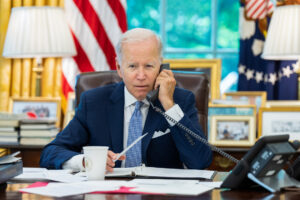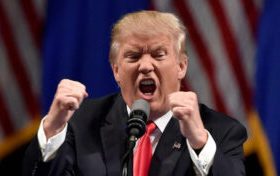WASHINGTON — The US House Foreign Affairs Committee voted on Wednesday along party lines to give President Joe Biden the power to ban Chinese-owned TikTok, in what would be the most far-reaching US restriction on any social media app.
Lawmakers voted 24 to 16 to approve the measure to grant the administration new powers to ban the ByteDance-owned app – which is used by over 100 million Americans – as well as other apps considered security risks.
“TikTok is a national security threat … It is time to act,” said Representative Michael McCaul, the Republican chair of the committee who sponsored the bill.
“Anyone with TikTok downloaded on their device has given the CCP (Communist Party of China) a backdoor to all their personal information. It’s a spy balloon into their phone.”
Democrats opposed the bill, saying it was rushed and required due diligence through debate and consultation with experts. The bill does not precisely specify how the ban would work, but gives Mr. Biden power to ban any transactions with TikTok, which in turn could prevent anyone in the United States from accessing or downloading the app on their phones.
The bill would also require Mr. Biden to impose a ban on any entity that “may” transfer sensitive personal data to an entity subject to the influence of China.
TikTok has come under increasing fire in recent weeks over fears that user data could end up in the hands of the Chinese government, undermining Western security interests.
The White House this week gave government agencies 30 days to ensure that TikTok is not on any federal devices and systems. More than 30 US states, Canada and European Union policy institutions have also banned TikTok from being loaded onto state-owned devices.
The fate of the latest measure is still uncertain and faces significant hurdles before it can become law. The bill would need to be passed by the full House and US Senate, which is controlled by Democrats, before it can go to Mr. Biden.
“A US ban on TikTok is a ban on the export of American culture and values to the billion people who use our service worldwide,” a TikTok spokeswoman said after the vote.
The Mr. Biden administration did not say whether it was in favor of moving ahead with the bill or not, or answer if it believed Mr. Biden has the legal authority now to ban TikTok.
White House spokesperson Karine Jean-Pierre said “TikTok poses a problem and an issue – and so we have concerns about that as it relates to Americans’ data.”
‘INSTINCT TO BAN’
Representative Gregory Meeks, the top Democrat on the committee, said he strongly opposed the legislation but understands concerns about TikTok.
“The Republican instinct to ban things it fears, from books to speech, appears uninhibited,” Mr. Meeks said, adding the bill would require the administration to sanction TikTok and other subsidiaries of TikTok’s parent company.
The US government’s Committee on Foreign Investment in the United States (CFIUS), a powerful national security body, in 2020 unanimously recommended ByteDance divest TikTok because of fears that user data could be passed on to China’s government.
TikTok and CFIUS have been negotiating for more than two years on data security requirements. TikTok said it has spent more than $1.5 billion on rigorous data security efforts and rejects spying allegations. Mr. Meeks wants the talks to continue.
Mr. Meeks said the bill is “dangerously” broad and would require US sanctions on Korean and Taiwanese companies that supply Chinese companies with semiconductor chips and other equipment because of its broad restrictions on data transfers to China.
The American Civil Liberties Union called on lawmakers to oppose the bill, calling it “a serious violation of our First Amendment rights.”
Mr. McCaul told Reuters after the vote that he expects the bill would be voted on by theHouse this month.
TikTok Chief Executive Shou Zi Chew is due to appear before the US Energy and Commerce Committee on March 23 after meeting with lawmakers last month on Capitol Hill. — Reuters








